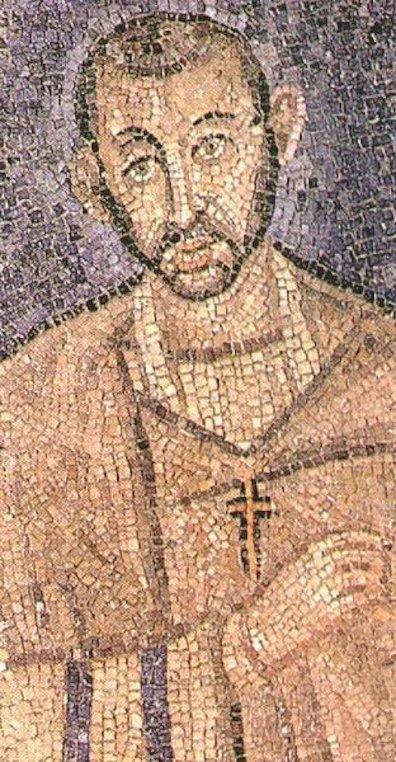Watching the sea flood in, Stephen thinks, "diebus ac
noctibus iniurias patiens ingemiscit," Latin words
which mean "by days and nights it patiently groans over
wrongs." He is recalling Saint Ambrose's commentary on Romans
8:22: "For we know that the whole creation groaneth and
travaileth in pain until now." In many translations of Paul's
words, the creation suffers the pains of childbirth, waiting
for the manifestation of God the way a pregnant woman waits
for delivery. Stephen seems to be aware of this conflation of
metaphysical expectation with sexual generation.
Watching seaweed moving on the incoming tide, Stephen thinks
of women. He sees "the writhing weeds lift languidly
and sway reluctant arms, hising up their petticoats, in
whispering water swaying and upturning coy silver fronds. Day
by day: night by night: lifted, flooded and let fall.
Lord, they are weary; and, whispered to, they sigh."
This picture of weary women lifting up their skirts for "lascivious
men" seems to trigger his memory of the Pauline
image: "Saint Ambrose heard it, sigh of leaves and
waves, waiting, awaiting the fullness of their times, diebus
ac noctibus iniurias patiens ingemiscit."
But instead of, or in addition to, Paul's thought that the
whole Creation longs for delivery from sin and revelation of
the Creator, Stephen meditates on a specifically sexual
weariness.
Drawing on the knowledge of Father W. T. Noon, Thornton notes
that the Latin phrase comes from Ambrose's Commentary on
Romans. Ambrose (ca. 340-397) was an early church
bishop who became known as one of the four Doctors or Fathers
of the western church. Born in Germany and educated in Rome,
he became bishop of Milan in 374 by popular acclamation, in
the midst of an intense fray between Arians and adherents of the Nicene Creed. He defended the
orthodox position even against the Emperor Valentinian II, an
Arian. His passionate Trinitarianism may have recommended him
to Joyce.
